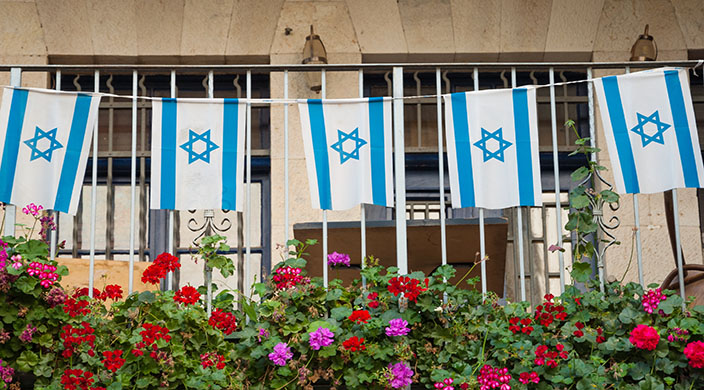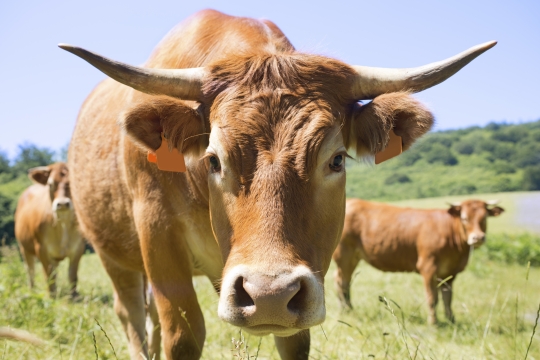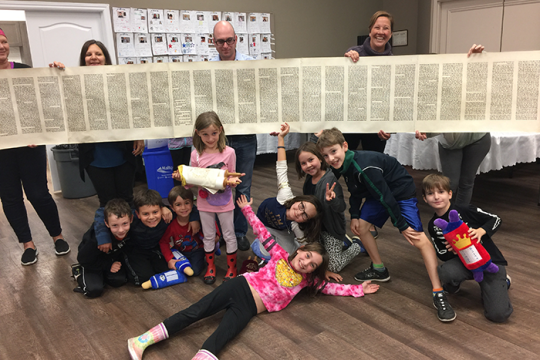
I finished my year of study in Jerusalem soon after the 48-hour roller coaster of emotion fueled by two holidays on the Jewish calendar: Israeli exhilaration over Yom HaAtzmaut (Israeli Independence Day) one day after the pain of Yom HaZikaron (Israeli Memorial Day). Yet I call Israel "the land of a thousand emotions" because, regardless of the day, the country always evokes a kaleidoscope of feelings in me.
As a progressive – religiously and politically – I have felt solidarity surrounded by tens of thousands at an LGBT rally in Tel Aviv, rage at the boys who screamed and spat at me and my fellow supporters from Women of the Wall, bafflement interviewing Bibi supporters on Election Day, and sadness while replanting uprooted trees in a Bedouin village in the West Bank. These experiences left me unprepared for the emotions that came next.
What do you imagine when you hear the name “Cohen’s Deli?” As a New Yorker, I envision pastrami on rye and half-sour pickles on the table. Cohen’s Deli on Jerusalem’s King David Street, however, is a refined cafe serving cappuccinos and French cheeses on fresh baguettes. It’s a bourgeois bakery; what’s the big deal? Sitting there, I couldn’t help but think how narrow Jewish life can be in America, how confined to specific spaces and types, how a Cohen must mean knishes and not brie.
In Israel, by contrast, French, Tunisian, South American, Ethiopian, Iraqi, and Ukrainian institutions, all Jewish, are packed tightly together. That diversity bowls me over and reminds me of the expansiveness of the Jewish people, about the multitudes that we have been and will continue to be. When the world tries to put Jews in a box, and when narrow-minded Jews do the same to one another, Israel as the crossroads of so many different people’s dreams – once only in our imaginations and now really on the map – can evoke such possibility and pride.
I also felt tenderness. On my journey out of the country, I took a shared van to Ben Gurion Airport. At one stop, a grandfather saying goodbye to his visiting granddaughter decided to board the bus, too, to offer an extended to every passenger and especially to the driver to whom he was entrusting his beloved family. Our driver was a gruff man who, since I’d boarded, had not stopped screaming – at his fellow drivers, at anyone in the van who talked on a cell phone, and at the heavens above for the traffic. But at this moment, the driver paused, looked at the 80-year-old grandfather, softened his face, and smiled, touching two fingers to his lips before extending them like a kiss. Amidst the diversity of this country, there’s something elemental, shared, and fully understood about the love for family, a respect for elders, a trust in God. I just can’t imagine a similar scene in Manhattan, no matter how hard I try.
Finally, I was surprised this year to feel empathy toward those with whom I disagree. I attended a peace event in Tel Aviv during Yom HaZikaron, in which bereaved Israeli and Palestinian families shared their pain – and their vision of peaceful living, side-by-side. I didn’t realize, but should have guessed, that this would to be a controversial event because some right-wing Jewish Israelis do not like that anyone would fraternize with “the enemy,” especially on a day devoted to remembering those who have died in war. As I was lamenting the wrong-headedness and bigotry of protestors who screamed, blew horns, and otherwise tried to interrupt our peaceful event, I remarked that it was so sad that these people had chosen to spend this occasion channeling their anger at us. And yet, at that moment, I realized that was exactly the point.
Many of these people are probably in such pain that perhaps they don’t know what else to do with it. Some are filled with blind hate, while others may, in the muddled mess of mourning, need something or someone at which to scream. I don’t need to bend to their feelings, but I do need to recognize that people hurt in all different ways. If they need to shout, as long as it doesn’t affect others’ ability to observe Memorial Day as they see fit, maybe that’s okay.
I share these stories mostly because I want to remind myself of the human connections all around us. On some days, it can be hard to perceive, and, ironically, holy days can be some of the toughest. I’ve seen what’s happened to , which should be a joyous day celebrating a shared, unified city – but instead has become a violent parade of Jewish extremists screaming hatefully in the Muslim Quarter. Pride and tenderness and empathy can be in short supply in the Holy Land, so we need extra in reserve. May they grow in time.



